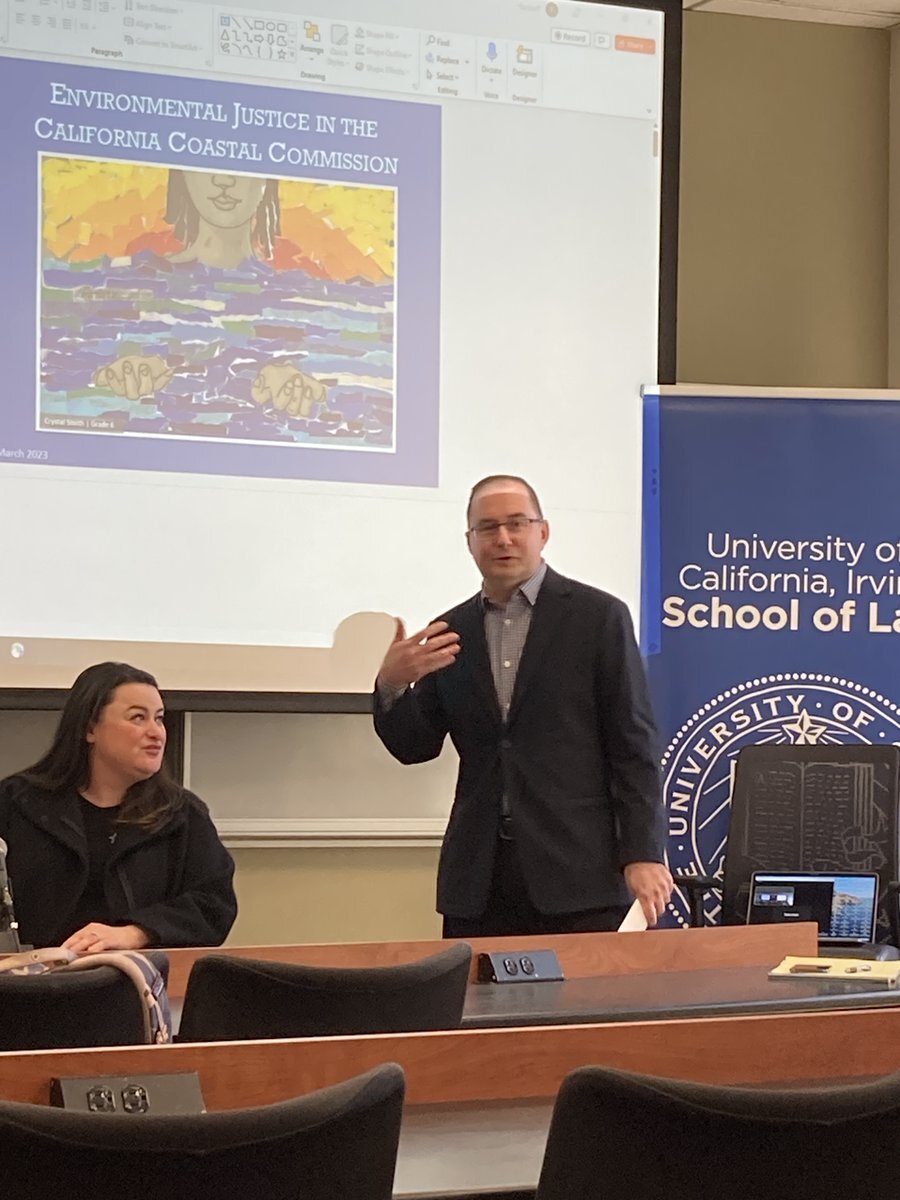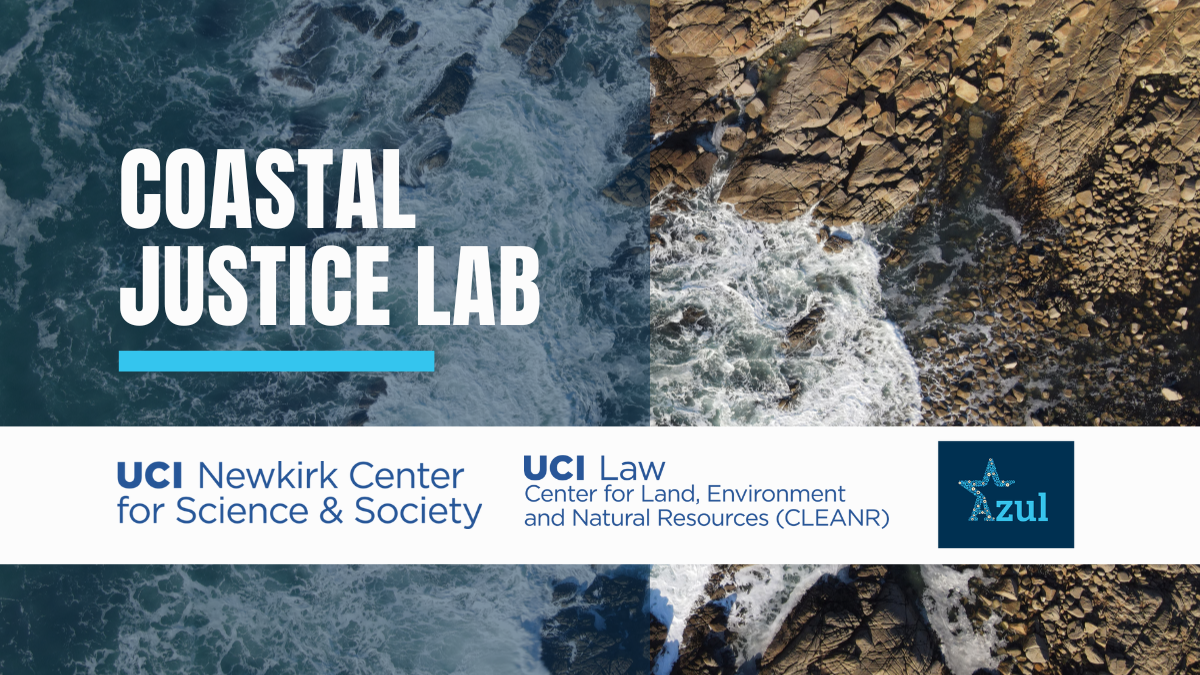30 years ago, high-profile attempts to manage California’s coastal ecosystems broke down in dramatic fashion; they did not properly engage Black, Indigenous, people of color, or low-income communities.
20 years ago, agencies that manage coastal and connected resources, such as California’s State Lands Commission and Coastal Commission, were among the first to develop environmental justice policies.
15 years ago, the number and complexity of coastal justice issues that agencies recognized as within their purview exploded, without a similar increase in resources or authority.
10 years ago, coastal agencies were further tasked with implementing the state’s legislative commitment to a Human Right to Water.
More recently, coastal agencies adopted racial equity policies and resolutions condemning systemic racism. They directed 100s of staff, offices, and programs to address the state’s role in perpetuating inequalities of access, affordability, quality, and rights to water and natural and cultural resources. And federal attempts to maximize the benefits of investment in disadvantaged communities, such as access to green space, parks, rivers, coastal areas, and drinking water, continued a trend begun in California.
Coastal regions, including public trust lands, offer unique leverage over climate policy and entire industries. Azul and other organizations recognize this fact. They devote hundreds of hours to coastal resource and planning advisory committees and working groups, draft and revise environmental justice policies, and analyze and comment on potential impacts as coastal agencies carry out core functions.
But state agencies lack capacity to carry out cumulative impact analysis, consider precautionary approaches, or ensure that their programs and actions comply with state and federal civil rights laws. They welcome the support of organizations such as Azul and university researchers to design metrics, indicators, and guidelines; legal and institutional analysis; data management tools; dispute resolution processes; and translation of new laws, the Human Right to Water, and fiduciary duties as trustee over public lands into programs and policies.
The Coastal Justice Lab leverages UC Irvine’s history of policy-oriented research and status as a minority-thriving campus, where first-generation students account for more than half of the graduating class and students of color comprise more than half of the School of Law’s entering class. The Lab is unique among efforts to address coastal justice research and policy gaps. It focuses on action research and conflict resolution for matters of importance to coastal ecosystems in the region and beyond. The Lab has an Advisory Board of community leaders and researchers from multiple departments across the university.
The Coastal Justice Lab partners with Azul, a Latinx-led and -serving organization that focuses on marine conservation and ocean stewardship. For over ten years, Azul built a bridge between environmental justice and coastal and marine policy. Azul integrated equity and access values into California’s 30×30 strategies under Executive Order N-82-20, worked with the California State Legislature to ensure that the Coastal Commission must consider environmental justice in its decision-making, and co-sponsored a bill to establish a state 30×30 target, among other milestones.
Current Projects
The Coastal Justice Lab launches interdisciplinary research teams with community co-principal investigators, to develop community proposals that first appeared in recent proceedings but could not be addressed due to timing or resource constraints, or to meet a pressing governance concern for which an agency lacks dedicated staff or expertise. The Lab also convenes joint fact-finding among stakeholders whose research will inform anticipated planning or regulatory proceedings that impact coastal and public trust resources.
The Coastal Justice Lab’s output includes policy proposals; guides and story maps; draft legislation; convening reports, facilitated dialogues, and draft agreements; and peer-reviewed research to support ongoing agency efforts. Each project also serves as a model for other agencies, states, and communities, to guide conflict assessment, cumulative impact analysis, collaborative problem-solving, equity analysis, and ecosystem management as well as the implementation of environmental justice policy in coastal settings. For more information, please contact Dr. Gregg Macey, CLEANR Director.
News
Past Policy Workshops
Enhancing Coordination and Integrating Water Quality Protection in California’s Marine Protected Areas
January 13, 2021
In partnership with UCI OCEANS and working with state and local entities
Against the backdrop of California’s ongoing assessment of its MPA network, this roundtable built on a June 2016 scoping session and convened experts and practitioners to explore the goals of MPAs in dynamic conditions, opportunities to overcome regulatory fragmentation in water quality monitoring, and the lessons of MPA collaboratives in promoting coordination.
Native Nations Protecting Coastal Lands and Waters in California
November 19-20, 2016
In partnership Sacred Places Institute for Indigenous Peoples, Wishtoyo Chumash Foundation, UCI American Indian Resource Program, UCI OCEANS, UCI Sustainability, UCI Program in Public Health, The California Endowment, The California Wellness Foundation, and Resources Legacy Fund
This two-day convening aimed to strengthen relationships among, and government-to-government consultation between, Native Nations and the California Coastal Commission, the California Coastal Conservancy, NOAA, and Bureau of Ocean Energy Management, by building the capacity of Native Nations and Indigenous leaders to advance Tribal coastal and marine protection goals. It focused on strategies to achieve community-identified goals relating to Tribal sovereignty and environmental justice and the development of effective, up-to-date state and federal coastal marine preservation and management policies.
Adaptive Management of Marine Protected Areas
June 9, 2016
In partnership with UCI OCEANS
Globally, a number of jurisdictions including California are developing, testing, and refining various approaches to marine management through the use of Marine Protected Areas (MPAs). As California’s newly implemented MPA network approaches regional and statewide reviews, roundtable participants will compare the effectiveness of California’s regime to other jurisdictions, consider the goals of MPAs in light of shifting baselines, and assess the overall effectiveness of California’s overlapping, and often fragmented, regimes of marine governance. Against the backdrop of the South Coast MPA Region’s five-year assessment, legal scholars and scientists from academia, government, industry, and non-profit organizations will consider the implementation and long-term success of MPAs in an increasingly dynamic world.

